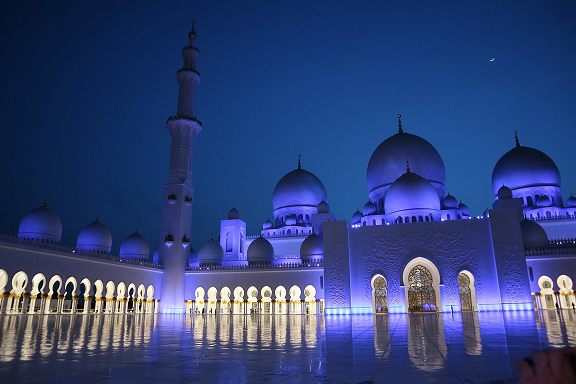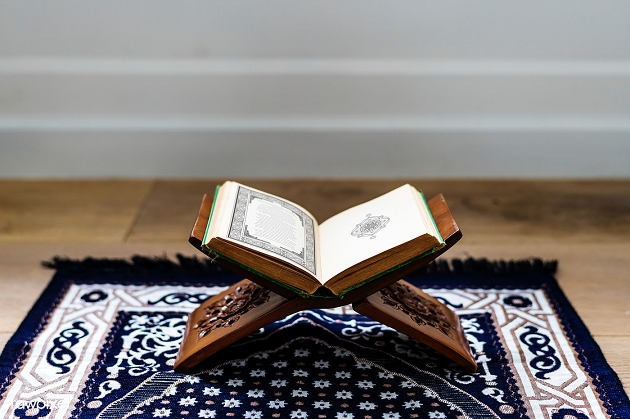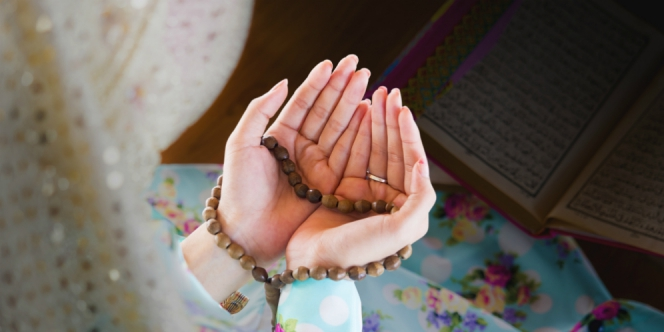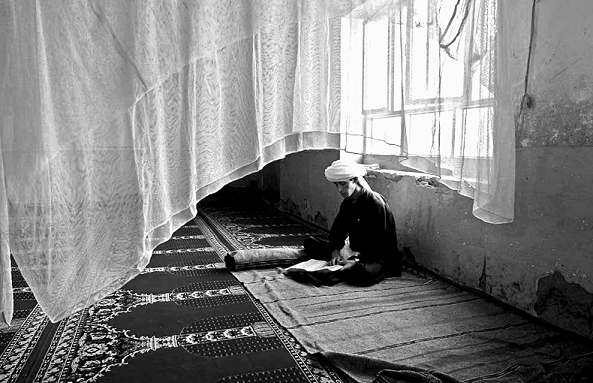Laylat ul Qadr 2020 - 27th Ramadan 1441
Laylat ul Qadr 2020 - 27th Ramadan 1441
WHEN IS LAYLAT AL QADR 2020?
As we all know that Laylat al Qadr is one of the odd nights of last 10 days of Ramadan, therefore This year, Laylat al Qadr 2020 is expected to be observed on Tuesday, May 19th. However, exact date is subject to sighting of moon of Ramadan, 1441.
WHAT IS LAYLAT AL QADR?
Laylat al Qadr (لیلة القدر)
is an Arabic world which means Night of Power / Night of Decree in English.
This is also known as Laylat al Qadr, Laylatul Qadr, Lailatul Qadr / Lailatul
Qadar and (شب قدر) in different parts of world.
Ramadan is the holiest month for all Muslims around the
world and Laylat Al Qadr is the holiest night of Ramadan which signifies the
importance of this night. As mentioned in the beginning, this night is better
than a thousand months and worshiping on this night is better than eighty-three
years of worship. Only this reason itself should encourage a true Muslim to
spend this night in prayer, Dua & Dhikr, seeking forgiveness and ask Allah
for all the blessings of this world and hereafter.
This night is so valuable that the Quran devotes a special Surah to it i-e Surah Al-Qadr (97).
WHEN LAYLATUL QADR IS OBSERVED?

Although the exact night on which Laylatul Qadr occurs has
not been mentioned anywhere, however, Prophet Mohammad (S.A.W.) has directed us
to seek Laylat Al Qadr during the odd nights of last 10 days of Ramadan. The
same is also evident from the following Hadith:
Narrated by Aishah (R.A.) that Messenger of Allah (S.A.W.) said:
“Search for the Night of Qadr in the odd nights of the last ten days of Ramadan.”
So Laylat Al Qadr falls on either 21st, 23rd, 25th, 27th or 29th night of Ramadan. However, it has mostly been emphasized that it is most likely to be the 27th night of Ramadan.
SIGNIFICANCE
OF LAILATUL QADAR
There are many Quranic Ayahs and Hadiths about the
importance and significance of this blessed night.
Quran was Descended on this night

The Holy Quran was first sent down from heaven on this night. The same is also evident from the following Ayahs of Quran:
“Verily, We have sent it (this Qur’an) down in the night of Al-Qadr (Decree).”
“Indeed, We sent it down during a blessed night.”
"Ramadan is the (month) in which was sent down the Quran, as a guide to mankind, also clear (signs) for guidance and judgment (between right and wrong)."
The Revelation of the Holy Quran; a sign of Mercy, a guide and a blessing of Allah to mankind. Anyone who is interested in finding the best guide, he/she should look into the teachings of Quran Kareem.
This Night is better
than Thousand Months
Allah says in Quran:
“The night of Al-Qadr (Decree) is better than a thousand months.”
This means worshipping Allah in Laylatul Qadr is better, in reward, than worshipping Him a thousand months, which is equal to 83 years and 4 months.
All your past sins will be forgiven

It is narrated by Abu Hurirah (R.A.) that the Prophet (S.A.W.) said:
“Whoever established prayers on the night of Qadr out of sincere faith and hoping for a reward from Allah, then all his previous sins will be forgiven."
How Prophet (S.A.W.)
observed this night
Praying on this night is also a Sunnah of our beloved Prophet (S.A.W.). Messenger of Allah (S.A.W.) would engage himself in devotion during the last ten nights of Ramadan more than he did in any other time of the year. The same is also evident from the following Hadith:
It is narrated by Aishah (R.A.):
“When the last ten nights began (of Ramadan), Allah's Messenger (S.A.W.) kept awake at night (for prayer and devotion), wakened his family, and prepared himself to observe prayer (with more vigour).”
Purpose of Itikaaf

Itakaaf in Mosque during the last 10 days of Ramadan is a
great deed and it is also Sunnah of our beloved Prophet (S.A.W.). The main
purpose of Itakaaf is seeking Laylat Al Qadr as the same is evident from the
following Hadith.
As narrated by Aishah (R.A.), who said:
‘Allah's Messenger (S.A.W.) used to practice Itikaf in the last ten nights of Ramadan and used to say, "Look for the Night of Qadr in the last ten nights of the month of Ramadan."’
Prophet (S.A.W.) used to pray so much during Itakaaf that
forehead of our Prophet (S.A.W.) became blacken due to continuous prostration
before Allah.
As reported Abu Sa'id al-Khudri (R.A.):
“Prophet (S.A.W.) adhered to his place of Itikaf and his forehead was besmeared with mud and water."
[Sahih Muslim: 1167 (b)]
Angels come down to
Earth with Goodness
Allah Says in Quran:
“The angels and the spirit descend therein by the command of their Lord with His decrees for every affair.”
According to Ibn Kathir, the angels descend in abundance, under the leadership of Jibirl (A.S.), during the Night of Al-Qadr. The angels descend with the descending of blessings and mercy, just as they descend when the Quran is recited, they surround the circles of Dhikr (remembrance of Allah) and they lower their wings with true respect for the student of knowledge. The angels continue giving the greetings of peace during the whole Night of Al-Qadr to the people who are busy in Supplications, Prayers, Quran Recitation, Dhikr of Allah or any remembrance of Allah until the time of Fajr (dawn) comes.
DUA FOR LAYLATUL QADR
It was narrated from Aishah (R.A.) that she said:
"O Messenger of Allah, what do you think I should say in my supplication, if I come upon Laylatul Qadr?" He said: "Say:
Allahumma innaka ‘afuwwan tuhibbul-‘afwa fa’fu ‘anni
(O Allah, You are Forgiving and love forgiveness, so forgive me)."
THINGS TO
DO ON LAILATUL QADR
If you are interested in living the Night of Power, let us remind you of some of the things that you might have to do.
On the nights (odd nights of last 10 days of Ramadan) one may spend the time collectively and/or individually observing the following activities:
2) Prayers Nafl after Taraweeh Prayer.
3) Remembrance of Allah or Dhikr.
4) Supplication or Dua for you and for others.
5) Reading books of Hadeeth to learn about Sunnahs of Prophet Mohammad (S.A.W.).
6) Reading Tafseer of Quran.
7) Giving charity to others if you can afford it.
8) Trying to explain Islam, if you know something about it, to those next to you so they will benefit from you.
CONCLUSION
All in all, the Night of Power is a very important occasion in Islam. This Night is a night of Mercy, a night of Blessing, a night of Peace and a night of Guidance. It is a night of Unification between the finite world of ours and the Infinite Universe of the Unseen. Anyone who is interested in attaining the Mercy of Allah will strive very hard to look for the Night of Power. Anyone who is interested in receiving the blessings of Allah on the Blessed Night will work very hard to make the most of the Night of Power. Anyone who is interested in attaining peace of mind, peace of body and peace in society; he/she has to look for this Night and live it.
May Allah give us the strength, the power, the courage and
the effort to do our best to obey Allah and follow His teachings. May Allah
guide us and strengthen our Iman. We pray that may Allah help us live another
year with sincerity and devotion. May Allah make us realize that one year of
our life is over and we are one year closer to our graves. Let us wake up and
do our best to please Allah in our daily life. Let us ask Allah for
forgiveness.
Ameen
Contact Us






